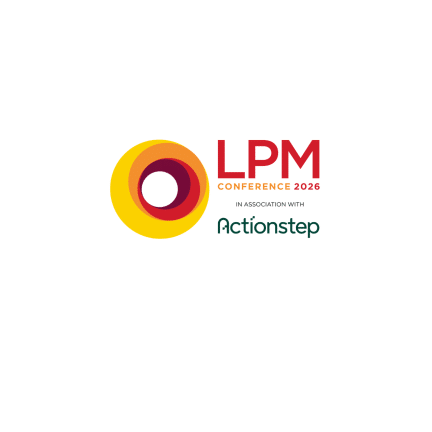
Navigating litigation compliance post-Mazur v CRS LLP
Following a recent High Court ruling concerning the right to conduct litigation, BARBRI’s director of learning Alisa Gray, and training and design specialist Roy Morgan offer an in-depth look at what this means for law firms, and what key steps they need to take to ensure compliance
A recent High Court ruling has sent ripples through the legal community, fundamentally questioning the long-standing practice of how law firms manage and staff litigation caseloads.
It has always been clear that litigation is a reserved legal activity for which you need authorisation to conduct it. The grey area was whether supervision of unauthorised legal professionals by a qualified solicitor was sufficient in itself to allow paralegals and legal executives to run litigation files. The decision in Mazur & Anor v Charles Russell Speechlys LLP (Mazur v CRS LLP) ruled that supervision is not enough and that unauthorised legal professionals can only assist in litigation.
While this ruling may be appealed, and industry leaders are seeking clarity from the Solicitors Regulating Authority (SRA), the Law Society and the Chartered Institute of Legal Executives (CILEX), this judgment presents a significant compliance challenge for firms relying on paralegals to manage files — and a potential risk of criminal liability for both the individual and the employer.
The ruling is not an attack on the vital role of paralegals in modern legal practice, but it is a firm reminder of the strict legal framework governing reserved activities.
The key question for your firm is straightforward: do your current oversight and delegation practices withstand robust legal scrutiny?
Understanding the ruling: what does ‘conducting litigation’ mean?
The judgment in Mazur v CRS LLP revolved around the activities of an unqualified fee earner, Mr. Middleton, at a debt recovery firm. Despite his work being supervised by an authorised solicitor, the court examined whether his actions constituted ‘conducting litigation’ — a reserved activity under the Legal Services Act 2007 (LSA).
The High Court determined that an employee cannot conduct litigation simply by virtue of being employed by an authorised firm, even with supervision. This decision puts a spotlight on the definition of conducting litigation. According to Schedule 2 of the LSA, this includes:
- Issuing proceedings before any court in England and Wales;
- The commencement, prosecution and defence of such proceedings; and
- The performance of any ancillary functions in relation to such proceedings.
Intervening in the appeal, The Law Society and the SRA drew a crucial distinction: non-authorised staff can support an authorised person in conducting litigation, but they cannot conduct it themselves, even under supervision. The line between ‘supporting’ and ‘conducting’ is a question of fact and degree, turning on who holds ultimate responsibility and exercises professional judgment.
The risks of non-compliance for your firm
For many firms, especially those in high-volume areas like personal injury, insurance litigation and commercial debt recovery, paralegals are the engine room. It is common for a single qualified solicitor to oversee a large team of paralegals, each managing a substantial caseload. The Mazur ruling directly challenges this model if supervision is not sufficiently hands-on.
The consequences of getting it wrong are severe. Carrying on a reserved legal activity without authorisation is a criminal offence under Part 3, Section 14 of the LSA. If an employee commits this offense, the employer may also be held liable.
Beyond the legal penalties, it affects recoverability of costs, reputational damage and potential for client challenges for work unlawfully carried out. These consequences could be devastating for any firm, particularly SMEs.
Are you confident that every formal step in your litigation files is being handled by a person legally entitled to do so?
Practical steps to ensure compliance
Firms must act now to mitigate risk and ensure their practices align with the court’s interpretation of the law.
1. Audit your delegation and supervision practices
Review who in your team is performing tasks that could be defined as conducting litigation. Examples include who is making decisions, determining strategy, or signing court papers. Ensure that the responsible solicitor is clearly identified, there is a well-documented chain of command, and that the authorised individual maintains direct control and responsibility for all reserved legal activities. General supervision is no longer enough.
2. Assess your team’s qualifications
Identify which team members are managing litigation files and determine whether they are formally qualified to conduct litigation. This is not about their competence, but their legal authorisation.
3. Invest in upskilling your talent
The most effective long-term solution is to empower your most valuable team members with the qualifications they need. This not only ensures compliance, but also enhances their skills, boosts morale, demonstrates a commitment to their professional development and, ultimately, helps to retain good talent.
Training solutions for upskilling your paralegals
1. CILEX advocacy course
For paralegals focused on litigation, the CILEX advocacy course in civil, criminal or family law is the most direct and efficient solution. This qualification specifically authorises individuals to conduct litigation in their chosen practice area. Upon successful completion of the , your paralegals will be legally empowered to continue managing their caseloads, turning a compliance risk into a qualified asset. Having trained and assessed CILEX paralegals for many years, their knowledge and skills have been found to be of an incredibly high standard, showing them more than capable of conducting litigation in their specialist area.
It’s worth noting that the process requires participants to submit a portfolio of experience to CILEX for approval and ndertake the course and assessment. The certification process can take a while, so it’s not an immediate solution, but getting the process going is the first step and with BARBRI’s excellent pass rates, it’s worthwhile.
2. Solicitors Qualifying Examination (SQE)
For paralegals with ambitions beyond a single practice area, or for firms seeking to build a pipeline of future solicitors, the SQE is the premier route to qualification. This comprehensive pathway provides the broadest authorisation, allowing individuals to carry on all reserved legal activities (except notarial services). Investing in SQE preparation for your top paralegals is an investment in the future of your firm, creating qualified, versatile and loyal solicitors from within your own ranks.
Secure your firm’s future today
The High Court’s decision in Mazur v CRS LLP is a call to action. It demands that law firms critically evaluate their long-standing practices and take decisive steps to ensure compliance. This is an opportunity to strengthen your firm by investing in your people.
By upskilling your paralegals through recognised qualifications like the CILEX advocacy course or the SQE, you can eliminate legal risk, protect your firm’s reputation, and build a more resilient and capable team.
BARBRI has a proven track record of successfully preparing legal professionals for qualification. Contact us to discuss how we can help you navigate this new landscape and turn a compliance challenge into a competitive advantage.




